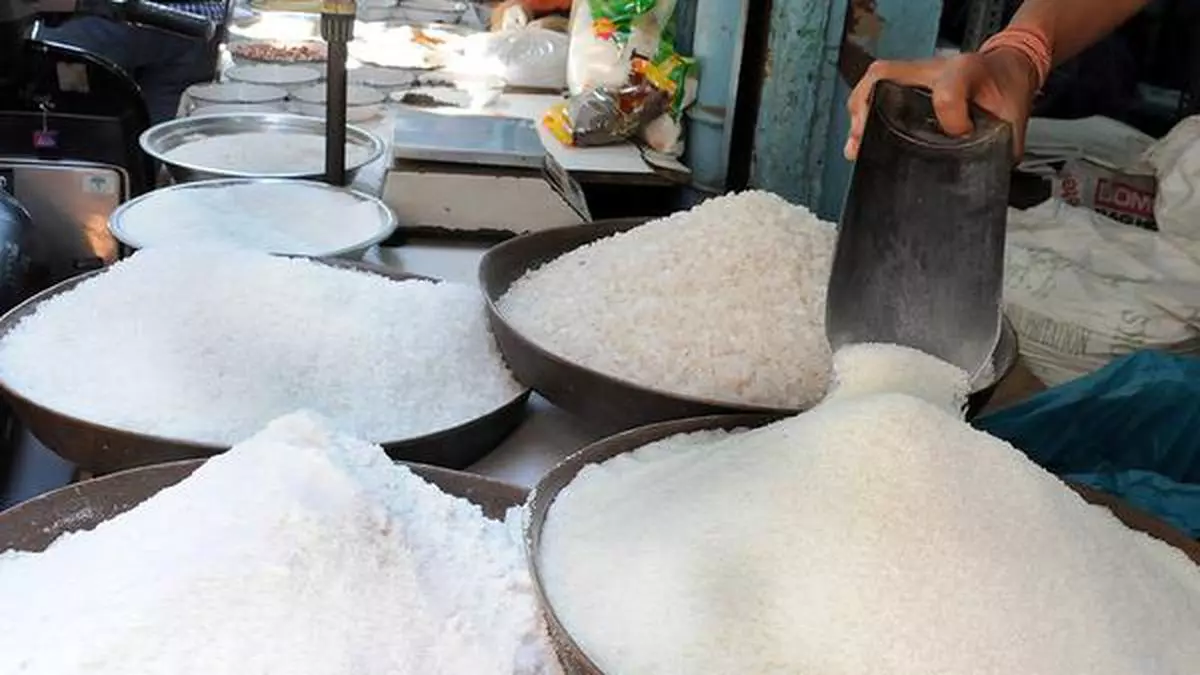Part of India’s sugar export quota to Maldives ‘diverted’ to Sri Lanka, Malaysia
Some Indian exporters have allegedly misused a part of the 64,494.33 tonnes of sugar allocated by the Centre to Maldives under a bilateral agreement between the two countries.
The Directorate-General of Foreign Trade (DGFT) had on April 5, 2024, issued a notification under the agreement permitting rice, wheat flour, dal, sugar, eggs, potatoes and onions, besides stone aggregate and river sand.
Though India has not permitted sugar exports in the 2023-24 season (September-October) because of a decline in production, it allowed shipments of limited quantities to a few countries such as Maldives.
80 containers land in Colombo
Trade sources, speaking on conditions of anonymity, said 80 container loads of sugar from the country, permitted for exports to Maldives, have landed in Colombo, Sri Lanka., recently.
A copy of the bill of lading dated September 30, 2024, made available to businessline showed that the shipments of 270 tonnes were made from Nhave Sheva port with the final port of destination as Colombo.
The bill claimed that the cargo was in transit to Male, Maldives at the consignee’s risk. Trade sources pointed to a curious note in the bill which asked that the empty containers be handed over to “carriers nominated depot in Colombo on consignee account”.
“Is Male so small that the container should be sent back to Colombo? The fact is these sugar were made available to Lankan traders,” a first trader said.
The invoice raised for the shipment revealed a cost and freight payment of $580/tonne totalling $156,600 to be paid by a Colombo-based firm to a UAE-based shipper. The consignee was “to be advised”.
- Also read: Sugar diversion for ethanol may have to be over 45 lt to achieve 18-20% blending in 2024-25
Destination switch
Another invoice dated September 23, 2024, showed a Dubai-based firm selling another 270 tonnes at $585/tonne totalling $157,950 to an unmentioned consignee. It, however, wanted a Colombo-based company to be notified.
The first trader claimed that the invoice was switched to show the destination as Colombo and the buyer as a Sri Lanka trader.
A third document made available revealed that 270 tonnes of shipment went from Nhava Sheva Port in March this year to Port Klang in Malaysia. It had no mention of route or transhipment.
However, an attached sheet said the “cargo was in transit to Maldives”. A UAE-based firm’s name figures in the document. The shipment took place in March 2024. Sources said this was out of the sugar allocated to the Maldives for 2023-24.
“Why should sugar for Male go to Port Klang from Nhave Sheva? No sugar export is allowed to Malaysia and this raises suspicion of officials’ role,” said a second trade source.
Hitting coastal refiners
Traders said Sri Lanka imports sugar to meet its needs and its monthly demand is about 60,000 tonnes. “Such imports disrupt the market and harm the trade. Such diversion makes a mockery of India’s trade restrictions on sugar,” the first trader said.
Such diversion affects coastal sugar refiners, which import raw sugar under the Advance Authorisation Scheme and re-export it after refining.
Sources said the practice for such “unscrupulous acts” is to generate documents for exports and customs clearance for the country to which shipment is permitted. Once the cargo is out of customs’ charge, they get the bill of lading switched to the destination to which it is to be diverted and substitute the invoice.
A trade expert said there is no proper mechanism to prevent such “unscrupulous acts” and officials, particularly Customs, cannot be blamed. However, the expert wondered why Malaysia or Sri Lanka could not report to India the entry of a commodity whose export has been banned from India.
The Directorate-General of Foreign Trade (DGFT) should seek the bill that shows the consignment has landed at the destination. “If that is asked, all these will not take place,” said the second trade source.
Data showed that the sellers have no relation with any Maldives firm for selling any commodity.
